Your basement may seem like the ideal storage area due to its spaciousness and out-of-the-way location, but not everything is suited for underground keeping. Moisture, temperature fluctuations, and lack of ventilation turn many stored items into breeding grounds for mold or targets for deterioration.
This guide pinpoints common items that you should think twice about before relegating them to your basement space. Understanding what to store—and what to avoid—can save you from damaging valuable belongings or creating health hazards in your home.
Paint

Storing paint in your basement can lead to premature degradation due to fluctuations in temperature and humidity. Basements often experience damp conditions, which can cause the paint to separate and spoil. Always store paint in a cool, dry, and stable environment to preserve its quality.
Wine

While a basement might seem like an ideal spot for a wine cellar, without proper climate control, it’s a risky place to store wine. Temperature fluctuations and excessive moisture can alter the taste and ruin the wine’s integrity. Wine requires a stable environment, which many basements cannot provide without modifications.
Electronics

Basements are prone to humidity and even flooding, which are death sentences for electronic devices. Moisture can corrode circuits and lead to electrical failures. It’s safer to store electronics in a dry, temperature-controlled area to prevent damage.
Important Documents

Keeping important documents such as birth certificates, passports, and legal papers in the basement can expose them to potential water damage or high humidity. These conditions can render documents illegible and useless. Use watertight containers if basement storage is unavoidable, or better yet, keep them in a home office or safe.
Photographs

Photographs can deteriorate quickly when exposed to the moisture typically found in basements. Humidity can cause photos to stick together and promote the growth of mold or mildew, which destroys the paper. It’s best to keep cherished photographs in a dry, dark place to preserve your memories.
Firewood

Storing firewood in the basement can invite pests like termites and carpenter ants into your home. These insects can be destructive to the structure of your house and difficult to eradicate. Instead, keep firewood outside, away from the house, and only bring in what you need.
Propane Tanks

Propane tanks should never be stored indoors, including in the basement, due to the risk of leaks and potential explosions. Even small leaks can create a significant hazard. Always store propane tanks outdoors in a well-ventilated area.
Gasoline

Like propane, gasoline fumes are highly flammable and can accumulate in a basement, creating a fire hazard. Leaks and vapors from gasoline can be dangerous to your health and safety. Store gasoline in approved containers in a detached shed or another well-ventilated area away from living spaces.
Carpet and Rugs

Storing carpets or rugs in a basement can lead to mold and mildew if moisture levels are not adequately controlled. These items can absorb dampness from the floor and walls, leading to a musty smell and deterioration of the fibers. Consider climate-controlled storage or choose an alternative location within the home.
Food

Keeping food in a basement can attract rodents and insects, posing a risk to both your home and your health. Basements typically do not offer the dry, cool conditions required to store perishables or even non-perishables long-term. Use your kitchen’s pantry or another dry area for food storage.
Clothing and Fabrics
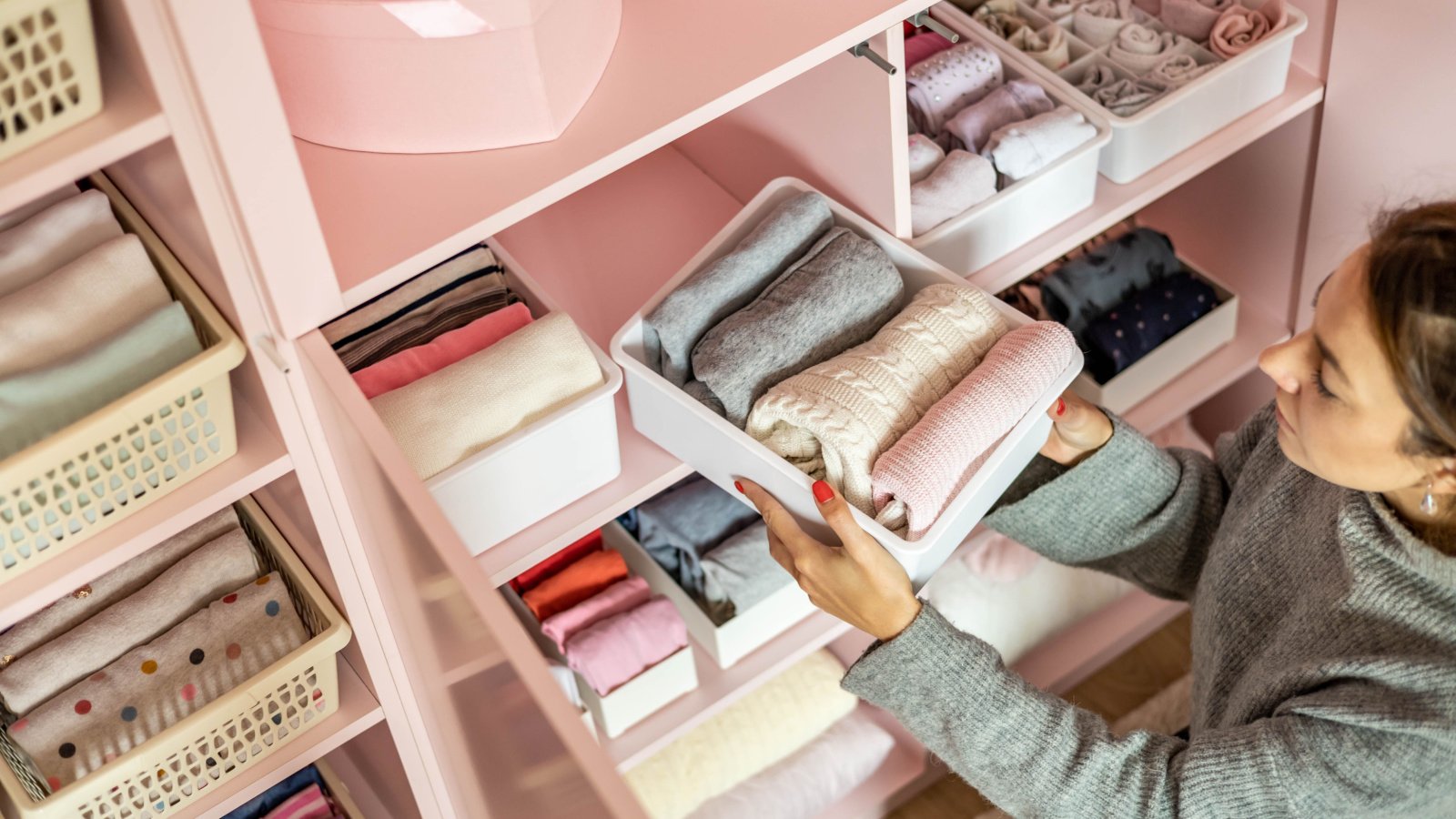
Fabrics stored in basements are susceptible to mildew and pests, which can ruin them. The lack of ventilation and potential dampness can lead to unpleasant odors and deteriorated materials. Store clothing in dry, cool closets, and consider using garment bags for extra protection.
Wooden Furniture
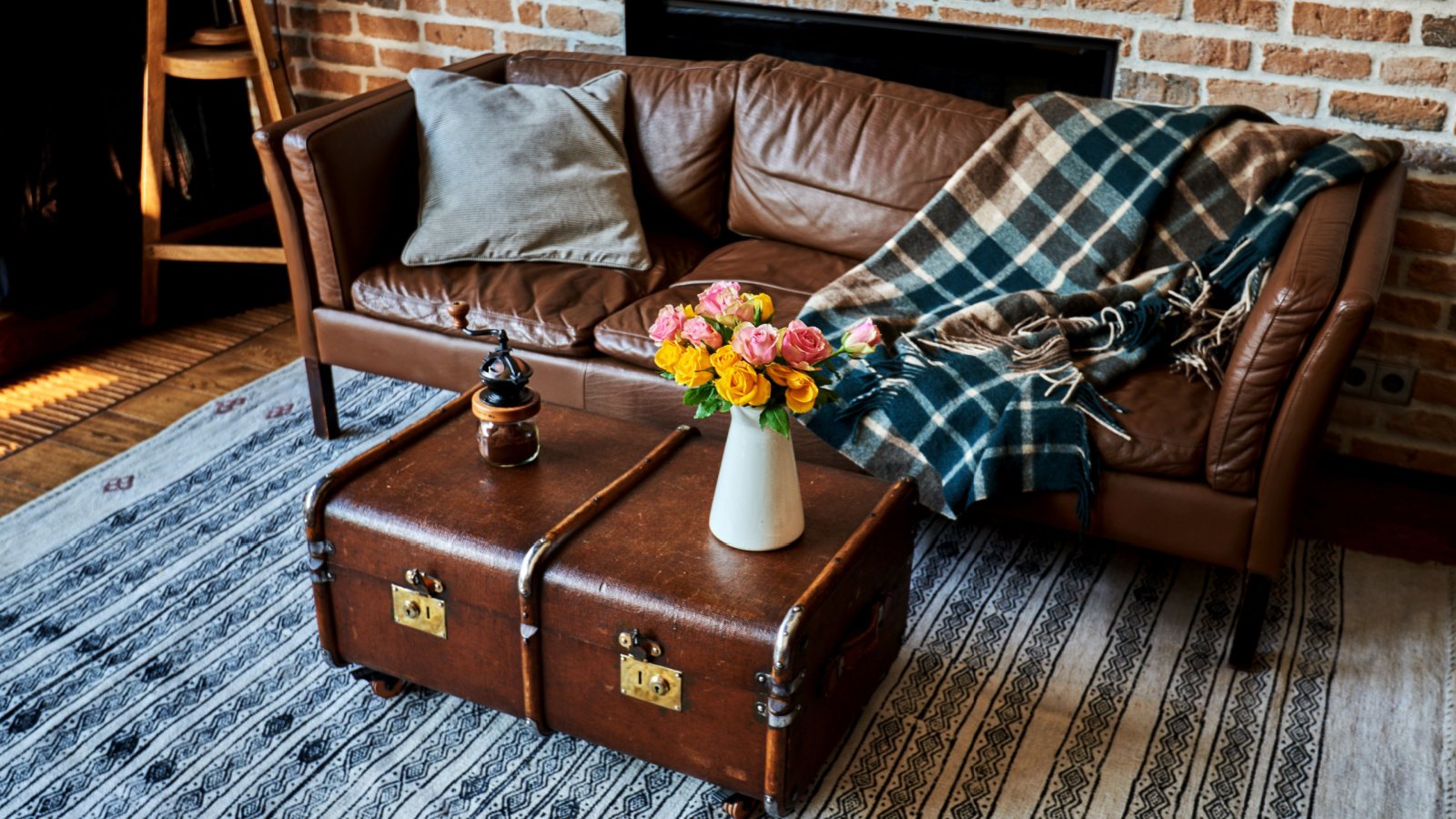
Wood can warp, crack, or rot when exposed to the damp conditions often found in basements. Furthermore, moisture can lead to mold growth on and within the furniture. Store wooden items in well-ventilated, climate-controlled areas to maintain their condition.
Books
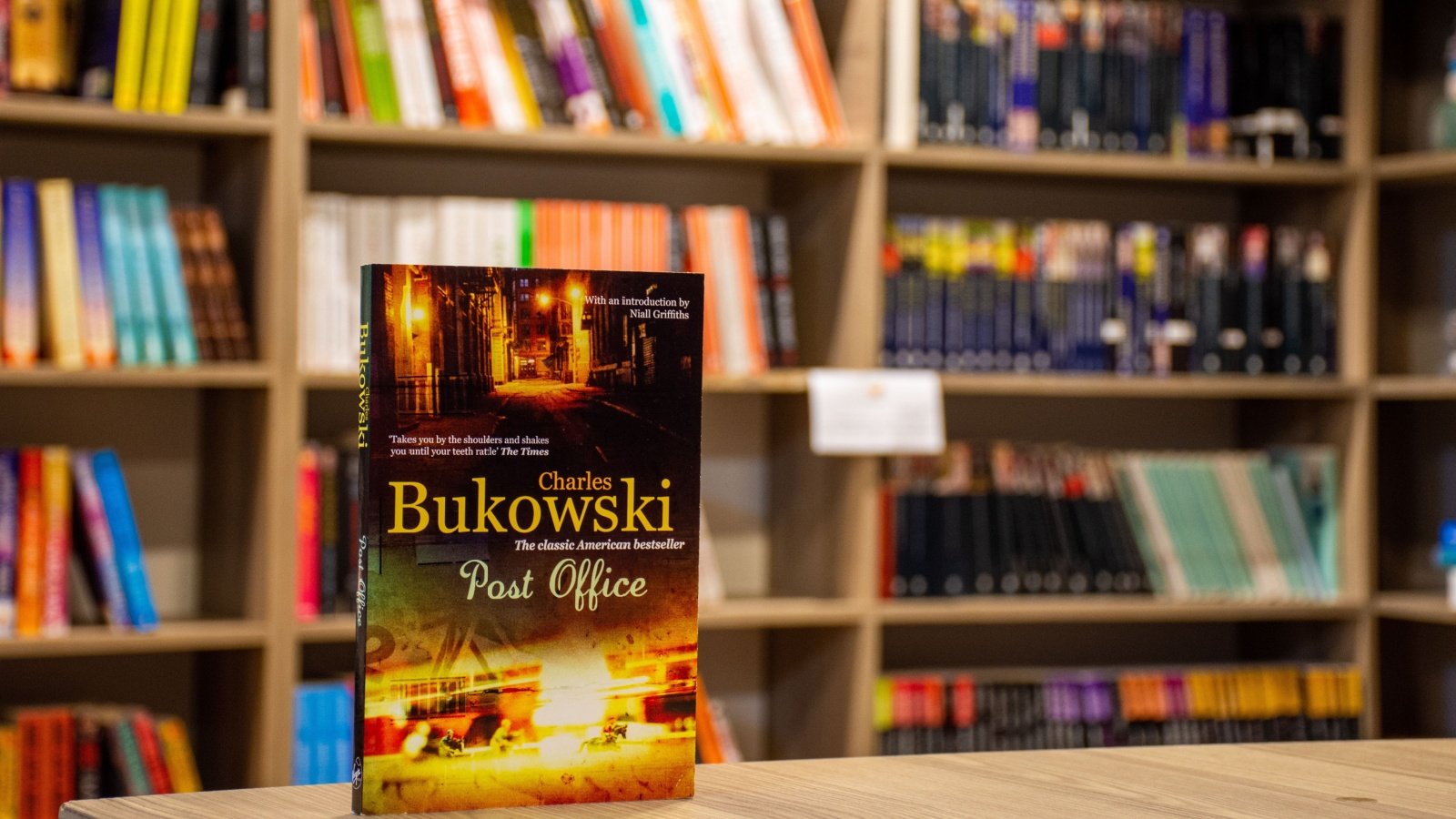
Books can absorb moisture, leading to swollen pages and mold growth, which damages the paper and binding irreversibly. The smell of mildew can also permeate the pages, making them unpleasant to handle. Keep your books on shelves in a dry area of your home instead.
Upholstered Items

Upholstery can trap moisture and become a breeding ground for mold and mildew when stored in a basement. These fungi not only cause a musty odor but can also lead to health issues. Always store upholstered furniture in a dry environment and use protective covers.
Musical Instruments

Musical instruments, particularly those made of wood, are sensitive to humidity and temperature changes. These conditions can damage the instrument’s quality and playability through warping and cracking. Store instruments in their cases away from extreme conditions, ideally in room-temperature settings.
Artwork

Art can suffer from extreme temperatures and humidity, which can cause canvases to warp and paint to crack. Basements often fluctuate in environmental conditions and are not suitable for art storage. Preserve artwork by keeping it in a controlled environment, away from direct sunlight and moisture.
Seed Packets

Seeds can become moldy or lose their viability when exposed to moisture, which is often higher in basements. To ensure seeds remain dry and ready for planting, store them in airtight containers in a cool, dry place. Consider a shed or a cabinet in your utility room instead.
Christmas Ornaments

Delicate Christmas ornaments can be damaged by the damp and potentially moldy conditions of a basement. Moisture can tarnish metals and degrade other materials. Store holiday decorations in dry, temperature-stable environments to ensure they last for seasons to come.
Leather Goods

Leather is highly susceptible to mold and mildew, and storing leather items like jackets or furniture in a basement can lead to permanent damage. The porous nature of leather absorbs moisture, leading to stiffening and cracking. Keep leather goods in ventilated, dry areas to maintain their quality.
Herbal Medicines

Herbs and natural remedies need to be stored in cool, dry places to preserve their potency. Basements, often humid, can rapidly degrade the quality of these products. Use kitchen cabinets or special storage areas away from direct light and moisture.
Makeup and Toiletries

Humidity can cause makeup to deteriorate and degrade, and toiletries may separate or spoil in damp conditions. Basements, especially those without climate control, are not suitable for storing these items. It’s better to store beauty and health products in bathroom cabinets or bedroom vanities.
Linens and Towels

Storing linens and towels in the basement can result in a musty smell and mildew spots, which are difficult to remove. The fibers can also break down over time when exposed to dampness. Keep your linens and towels in a linen closet within your home for easy access and better preservation.
Collectibles
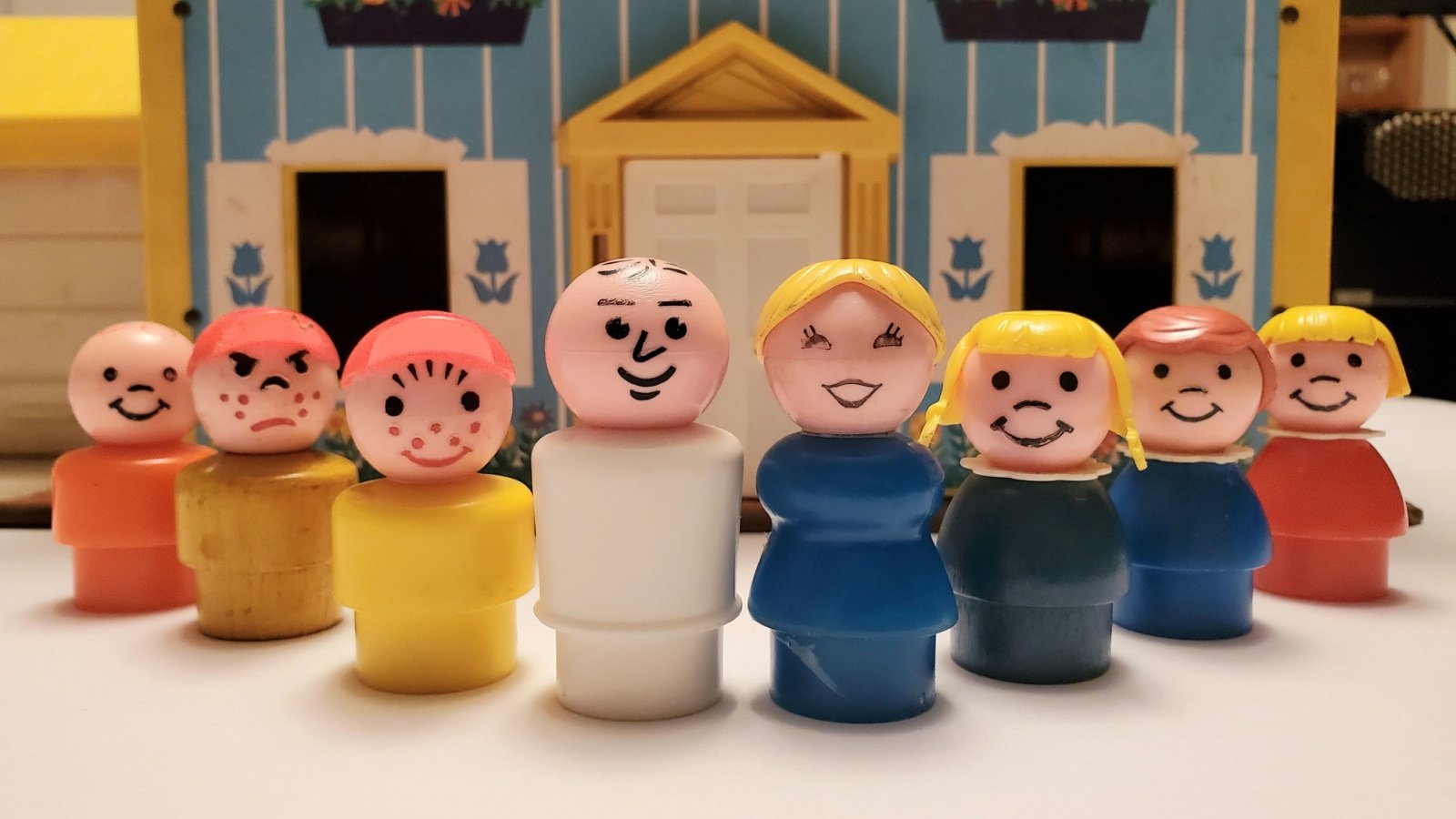
Collectibles often hold sentimental or monetary value and need to be protected from environmental factors that could damage them. Basements can expose collectibles to temperature fluctuations and moisture, which can lead to deterioration. Store collectibles in a display case or a room that has stable conditions to maintain their condition and value.
Archival Documents

Historical documents and archives require controlled environments to prevent degradation. Basements often lack the necessary humidity and temperature stability, leading to accelerated decay of paper and ink. Opt for archival-quality storage solutions in areas of your home that have consistent environmental controls.
Craft Supplies

Craft supplies, such as glues, paints, and fabrics, can be negatively affected by basement conditions. Humidity can cause supplies to clump, degrade, or become unusable. To maintain the integrity of your materials, store them in a craft room or a specific storage area away from dampness and fluctuations in temperature.




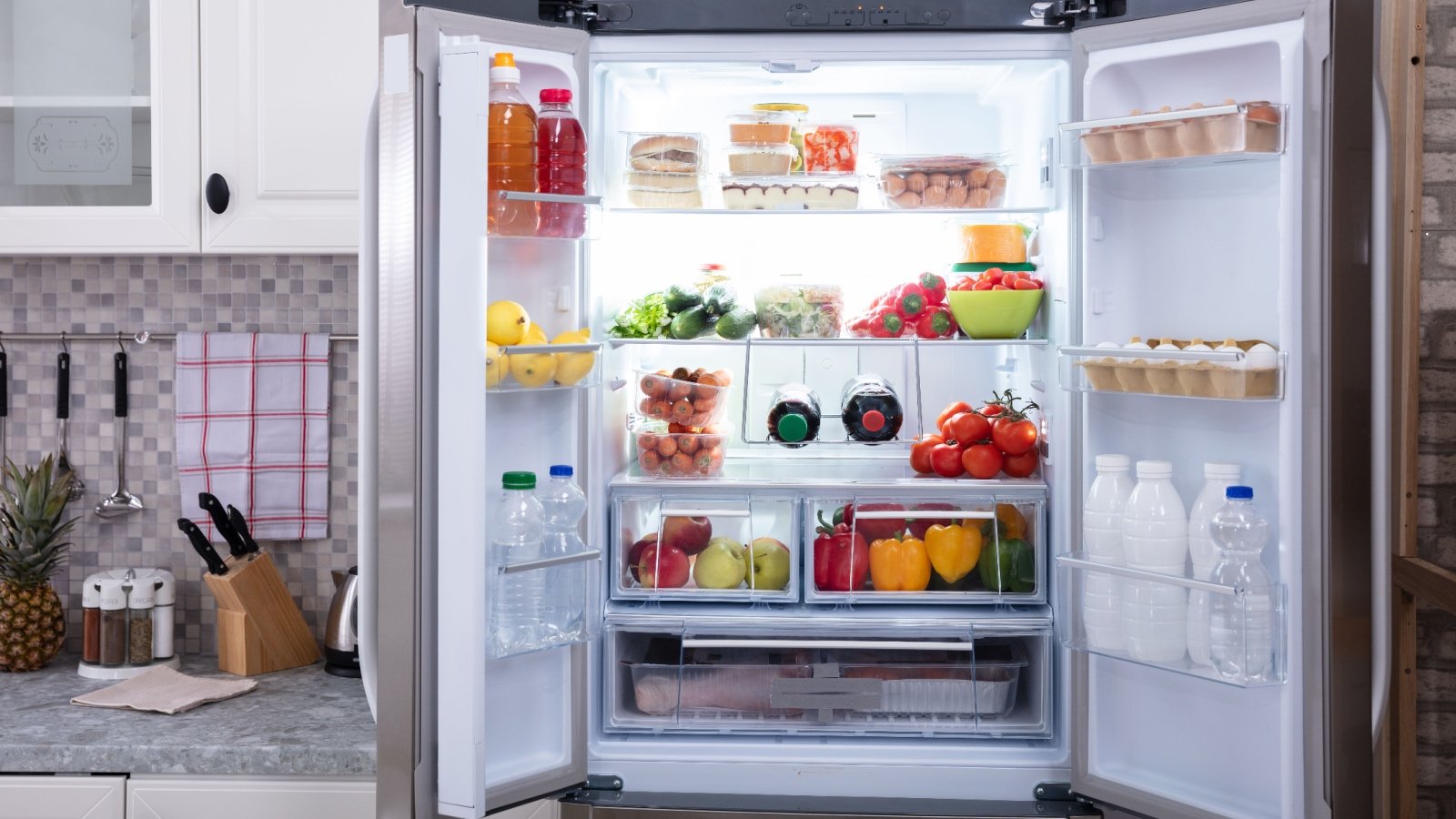




https://semaglupharm.com/# does medicare cover semaglutide
https://semaglupharm.com/# semaglutide results before and after
https://semaglupharm.com/# SemagluPharm
LipiPharm: USA-based pharmacy Lipitor delivery – atorvastatin 40 mg uses
SemagluPharm how long has rybelsus been on the market semaglutide dosing chart
https://semaglupharm.shop/# para que sirve rybelsus 7 mg
does semaglutide suppress appetite immediately: coupon for rybelsus – Safe delivery in the US
LipiPharm lipitor brand Lipi Pharm
https://semaglupharm.shop/# metformin vs semaglutide
https://prednipharm.shop/# PredniPharm
crestor vs lipitor vs zocor Crestor Pharm Crestor Pharm
https://semaglupharm.com/# SemagluPharm
side effects of atorvastatin calcium 20 mg can you stop taking atorvastatin LipiPharm
https://semaglupharm.com/# No prescription diabetes meds online
https://lipipharm.shop/# how long does atorvastatin stay in your system
LipiPharm: Lipi Pharm – atorvastatin cause weight gain
what is the difference between lipitor and crestor LipiPharm what is another name for lipitor
https://semaglupharm.com/# Rybelsus 3mg 7mg 14mg
Lipi Pharm: LipiPharm – Cheap Lipitor 10mg / 20mg / 40mg
PredniPharm 50mg prednisone tablet PredniPharm
https://semaglupharm.com/# Semaglu Pharm
https://crestorpharm.com/# CrestorPharm
prednisone 50 mg for sale PredniPharm PredniPharm
http://semaglupharm.com/# Semaglu Pharm
SemagluPharm: semaglutide pen – rybelsus 3mg side effects
https://semaglupharm.com/# Semaglu Pharm
Online statin therapy without RX Crestor Pharm what does crestor pill look like
https://semaglupharm.com/# SemagluPharm
Predni Pharm PredniPharm Predni Pharm
zero day lipitor: atorvastatin and tylenol – can atorvastatin cause dizziness
http://prednipharm.com/# PredniPharm
https://semaglupharm.shop/# SemagluPharm
what is the best time of day to take crestor side effects of rosuvastatin 5mg No doctor visit required statins
CrestorPharm: rosuvastatin allergic reaction – when to take rosuvastatin 10 mg
https://semaglupharm.com/# SemagluPharm
LipiPharm LipiPharm Lipi Pharm
Discreet shipping for Lipitor: atorvastatin overdose fatal – lipitor 10 mg price
http://lipipharm.com/# LipiPharm
https://semaglupharm.shop/# rybelsus patient assistance
SemagluPharm Semaglu Pharm Semaglu Pharm
Crestor Pharm: CrestorPharm – Crestor Pharm
http://semaglupharm.com/# compounded semaglutide
Meds From Mexico best online pharmacies in mexico Meds From Mexico
India Pharm Global: India Pharm Global – India Pharm Global
https://indiapharmglobal.com/# India Pharm Global
http://medsfrommexico.com/# Meds From Mexico
Meds From Mexico mexico drug stores pharmacies Meds From Mexico
reputable mexican pharmacies online: mexico drug stores pharmacies – mexican online pharmacies prescription drugs
https://indiapharmglobal.shop/# India Pharm Global
canadian drug prices Canada Pharm Global canadian pharmacy sarasota
https://canadapharmglobal.shop/# canada pharmacy online legit
top 10 pharmacies in india: India Pharm Global – India Pharm Global
https://canadapharmglobal.shop/# canadian pharmacy no scripts
http://medsfrommexico.com/# Meds From Mexico
canadian pharmacy ratings my canadian pharmacy rx reddit canadian pharmacy
legal canadian pharmacy online: Canada Pharm Global – canadian pharmacy checker
https://medsfrommexico.shop/# mexico pharmacies prescription drugs
https://canadapharmglobal.com/# canadian pharmacy king reviews
top online pharmacy india indianpharmacy com cheapest online pharmacy india
vipps approved canadian online pharmacy: canadian drug pharmacy – my canadian pharmacy reviews
https://indiapharmglobal.shop/# indianpharmacy com
buy prescription drugs from india indianpharmacy com world pharmacy india
northwest canadian pharmacy: Canada Pharm Global – canadian online pharmacy
https://medsfrommexico.shop/# Meds From Mexico
http://medsfrommexico.com/# Meds From Mexico
top online pharmacy india: reputable indian online pharmacy – п»їlegitimate online pharmacies india
https://canadapharmglobal.com/# northwest pharmacy canada
canadian neighbor pharmacy Canada Pharm Global cheap canadian pharmacy online
india pharmacy: online pharmacy india – India Pharm Global
http://canadapharmglobal.com/# best canadian online pharmacy
https://canadapharmglobal.shop/# canadian pharmacy near me
Rask Apotek: Rask Apotek – Rask Apotek
https://svenskapharma.shop/# whitening cream apotek
castor oil apotek Rask Apotek Rask Apotek
https://efarmaciait.com/# EFarmaciaIt
siler 50 prezzo: farmacia e commerce – EFarmaciaIt
https://raskapotek.shop/# Rask Apotek
EFarmaciaIt arcoxia 90 a cosa serve arval crema viso
https://efarmaciait.com/# EFarmaciaIt
cilodex gocce prezzo: wegovy acquisto online – fucidin cosa serve
Papa Farma Papa Farma farmacia veterinaria granada
http://raskapotek.com/# plus apotek
https://efarmaciait.com/# EFarmaciaIt
Svenska Pharma: fertilitetsglidmedel apotek – Svenska Pharma
https://efarmaciait.shop/# EFarmaciaIt
Svenska Pharma q10 och blodtrycksmedicin åldersgräns apotek
https://papafarma.shop/# cariban sin receta precio
baby apotek e-vitamin olje apotek Rask Apotek
https://svenskapharma.com/# Svenska Pharma
http://svenskapharma.com/# munskydd för barn apotek
Papa Farma cuanto tarda en hacer efecto movicol sobres Papa Farma
30 mg: EFarmaciaIt – farmacia scalapay
http://raskapotek.com/# stetoskop apotek
hund apotek mjuk bettskena apotek bästa mens appen
http://papafarma.com/# Papa Farma
nГ¤sspray frГҐn 1 ГҐr: Svenska Pharma – Svenska Pharma
https://raskapotek.shop/# Rask Apotek
farmacia por dentro Papa Farma Papa Farma
http://efarmaciait.com/# EFarmaciaIt
rГ¶dcederolja apotek: lika delar pГҐ apotek – Svenska Pharma
Svenska Pharma Svenska Pharma köpa diklofenak på nätet
https://raskapotek.shop/# Rask Apotek
https://efarmaciait.com/# augmentin compresse 1 gr prezzo
egglГёsningstest erfaring mariatistel apotek Rask Apotek
https://papafarma.com/# Papa Farma
farmacaia: casenlax sobres precio – Papa Farma
Papa Farma Papa Farma farmacu
http://efarmaciait.com/# EFarmaciaIt
https://efarmaciait.com/# bioscalin crescita capelli recensioni
http://papafarma.com/# comprar wegovy españa
https://pharmajetzt.com/# medikamente bestellen ohne rezept
Pharma Confiance ddg grossesse Pharma Confiance
Pharma Confiance: porte gel douche pour douche – Pharma Confiance
https://pharmaconnectusa.com/# Pharma Connect USA
http://pharmaconnectusa.com/# online pharmacy atenolol
online apotheek recept snel medicijnen bestellen apotheke nl
Pharma Jetzt: Pharma Jetzt – shop apptheke
https://medicijnpunt.shop/# medicijnlijst apotheek
https://pharmaconfiance.shop/# shampoing charbon garnier avis
PharmaJetzt PharmaJetzt Pharma Jetzt
https://medicijnpunt.shop/# Medicijn Punt
pharmacie de garde Г montpellier aujourd’hui: tadalafil comment le prendre – commande en ligne pharmacie
Pharma Connect USA pharmacy error methotrexate pharmseo24.com
http://medicijnpunt.com/# recepta online
PharmaJetzt: online-apotheke – medpex online apotheke
https://pharmaconnectusa.shop/# percocet cost pharmacy
http://pharmajetzt.com/# PharmaJetzt
Pharma Jetzt onlie apotheke bad apotheke online shop
п»їmedicijnen bestellen: medicijnen bestellen zonder recept – apotheek medicijnen bestellen
https://medicijnpunt.shop/# online apotheek 24
Pharma Connect USA online pharmacy permethrin lasix pharmacy
50 cl em ml: ozempic 1 mg prix – vichy test animaux
https://medicijnpunt.shop/# apotheek online
https://pharmaconnectusa.com/# adipex p online pharmacy
internet apotheken PharmaJetzt online apotheke
online viagra pharmacy reviews: Pharma Connect USA – Pharma Connect USA
http://pharmaconnectusa.com/# generic viagra pharmacy reviews
apotheke niederlande MedicijnPunt holland apotheke
Pharma Confiance: my shop cbd – Pharma Confiance
https://pharmaconnectusa.shop/# topamax pharmacy
http://pharmajetzt.com/# online apothele
cantura akut 12 apotheke liefer apotheke PharmaJetzt
pharmacД±e: Pharma Confiance – Pharma Confiance
https://pharmajetzt.shop/# Pharma Jetzt
PharmaConnectUSA Pharma Connect USA online pharmacy ireland viagra
Pharma Confiance: drogue douce liste – Pharma Confiance
http://pharmaconfiance.com/# Pharma Confiance
https://pharmaconnectusa.shop/# Pharma Connect USA
MedicijnPunt MedicijnPunt apotheken in holland
https://medicijnpunt.com/# medicatie apotheek
medikamente corona apotheke: schopapotheke – Pharma Jetzt
http://pharmajetzt.com/# Pharma Jetzt
MedicijnPunt Medicijn Punt MedicijnPunt
Pharma Confiance: Pharma Confiance – site pharmacie pas cher
http://pharmaconfiance.com/# pharmacie de garde brest aujourd hui
https://pharmaconfiance.com/# Pharma Confiance
tabletten bestellen PharmaJetzt internet apotheken
PharmaConnectUSA: PharmaConnectUSA – zyprexa online pharmacy
https://pharmajetzt.com/# metaflow rabattcode
atenolol people’s pharmacy: pharmacy express – pharmacy artane roundabout
https://pharmajetzt.com/# apotal apotheke online shop
https://pharmajetzt.com/# PharmaJetzt
claras apotheke online: onlineapotheken – online apothele
https://pharmajetzt.shop/# versandapotheken
Pharma Jetzt: versand apotheke deutschland – medikamente
https://medicijnpunt.shop/# Medicijn Punt
sjop apotheke: Pharma Jetzt – PharmaJetzt
http://medicijnpunt.com/# medicijnen bestellen zonder recept
https://pharmaconnectusa.com/# Pharma Connect USA
http://medicijnpunt.com/# Medicijn Punt
MedicijnPunt: MedicijnPunt – Medicijn Punt
http://pharmaconfiance.com/# Pharma Confiance
PharmaConnectUSA: people’s pharmacy wellbutrin – oneclickpharmacy propecia
https://pharmaconnectusa.shop/# PharmaConnectUSA
http://medicijnpunt.com/# pharma online
parapharmacie goussainville: Pharma Confiance – Pharma Confiance
https://pharmajetzt.shop/# PharmaJetzt
PharmaConnectUSA: PharmaConnectUSA – people’s pharmacy prozac
https://medicijnpunt.shop/# Medicijn Punt
https://medicijnpunt.com/# recept medicijnen
PharmaConnectUSA: no rx pharmacy – mexican pharmacies shipping to usa
MedicijnPunt: Medicijn Punt – Medicijn Punt
https://pharmajetzt.com/# PharmaJetzt
http://pharmaconnectusa.com/# Voveran SR
Pharma Confiance: Pharma Confiance – pharmacie autour de moi la plus proche
https://pharmaconnectusa.com/# Pharma Connect USA
Pharma Confiance: Pharma Confiance – service apres vente ghd
https://pharmaconnectusa.shop/# provigil online us pharmacy
http://pharmajetzt.com/# PharmaJetzt
apotheke: billigste versandapotheke – Pharma Jetzt
Pharma Confiance french pharmacy Pharma Confiance
nuxe canada: Pharma Confiance – helicobacter pylori est-ce grave
https://pharmajetzt.shop/# internet apotheke bad steben
http://pharmajetzt.com/# Pharma Jetzt
santГ© pharma en ligne Pharma Confiance Pharma Confiance
pharmashopi avis: pharmacie cialis – Pharma Confiance
https://pharmaconnectusa.shop/# Pharma Connect USA
shop aphotheke: PharmaJetzt – PharmaJetzt
ongle en gel Г 14 ans Pharma Confiance Pharma Confiance
http://pharmaconfiance.com/# verre normandie 11 cl
cancun pharmacy viagra: tretinoin online pharmacy – cost of lipitor at target pharmacy
https://pharmaconfiance.shop/# Pharma Confiance
Pharma Confiance Pharma Confiance Pharma Confiance
Pharma Connect USA: Pharma Connect USA – Pharma Connect USA
https://medicijnpunt.shop/# Medicijn Punt
http://pharmaconnectusa.com/# PharmaConnectUSA
beste online apotheke Pharma Jetzt Pharma Jetzt
https://pharmaconfiance.com/# Pharma Confiance
amande pas cher en gros: verre rhum personnalisГ© – pharmacie de garde Г nantes aujourd’hui
https://pharmaconfiance.shop/# laroche posay cure
location de tire laits grenoble: Pharma Confiance – Pharma Confiance
Pharma Confiance Pharma Confiance avis parapharmacie en ligne
Pharma Jetzt: PharmaJetzt – Pharma Jetzt
http://medicijnpunt.com/# MedicijnPunt
https://pharmaconnectusa.shop/# drug store news
bestellen apotheek apotheke niederlande apteka internetowa holandia
Pharma Confiance: Pharma Confiance – Pharma Confiance
https://canrxdirect.com/# pharmacy canadian
п»їbest mexican online pharmacies mexican border pharmacies shipping to usa pharmacies in mexico that ship to usa
IndiMeds Direct: Online medicine order – IndiMeds Direct
http://canrxdirect.com/# best rated canadian pharmacy
http://indimedsdirect.com/# IndiMeds Direct
online canadian drugstore CanRx Direct ordering drugs from canada
ed drugs online from canada: CanRx Direct – canadian world pharmacy
https://indimedsdirect.shop/# top 10 pharmacies in india
http://indimedsdirect.com/# IndiMeds Direct
canadapharmacyonline com CanRx Direct ed meds online canada
https://indimedsdirect.com/# mail order pharmacy india
http://canrxdirect.com/# legit canadian online pharmacy
http://indimedsdirect.com/# reputable indian pharmacies
TijuanaMeds TijuanaMeds TijuanaMeds
https://tijuanameds.com/# mexico pharmacies prescription drugs
https://canrxdirect.com/# best canadian online pharmacy
ordering drugs from canada buying from canadian pharmacies best rated canadian pharmacy
TijuanaMeds: pharmacies in mexico that ship to usa – TijuanaMeds
http://canrxdirect.com/# canada drugs online
buying from online mexican pharmacy TijuanaMeds TijuanaMeds
https://tijuanameds.com/# TijuanaMeds
http://canrxdirect.com/# pharmacy canadian
canadian pharmacy 24: CanRx Direct – canadian pharmacy no rx needed
buying prescription drugs in mexico TijuanaMeds TijuanaMeds
http://enclomiphenebestprice.com/# enclomiphene price
mejores droguerГas online: Farmacia Asequible – viagra marca blanca
https://rxfreemeds.com/# RxFree Meds
Farmacia Asequible champГє anaphase ducray opiniones comprar sildenafil online
http://enclomiphenebestprice.com/# enclomiphene for sale
enclomiphene for sale: enclomiphene citrate – enclomiphene testosterone
http://enclomiphenebestprice.com/# enclomiphene for sale
RxFree Meds Extra Super Avana RxFree Meds
enclomiphene buy: enclomiphene testosterone – enclomiphene best price
https://rxfreemeds.shop/# RxFree Meds
Farmacia Asequible viagra natural farmacia tadalafilo 20 mg precio farmacia
https://enclomiphenebestprice.shop/# enclomiphene for sale
florida online pharmacy: RxFree Meds – RxFree Meds
RxFree Meds RxFree Meds RxFree Meds
https://farmaciaasequible.com/# Farmacia Asequible
droguerГa cerca: ahorro direct – movicol precio sin receta
enclomiphene best price enclomiphene citrate enclomiphene testosterone
http://farmaciaasequible.com/# Farmacia Asequible
https://rxfreemeds.shop/# legit online pharmacy viagra
Farmacia Asequible: tramadol espaГ±a – Farmacia Asequible
farmacia 24h santander Farmacia Asequible casenlax jarabe
https://enclomiphenebestprice.shop/# enclomiphene best price
enclomiphene best price: enclomiphene for men – buy enclomiphene online
RxFree Meds RxFree Meds reputable viagra online pharmacy
Farmacia Asequible: crema diprogenta para que sirve – de la farmacia
https://rxfreemeds.shop/# RxFree Meds
https://rxfreemeds.com/# ativan online pharmacy
farmacia sol madrid farmacia sevilla este Farmacia Asequible
Farmacia Asequible: Farmacia Asequible – Farmacia Asequible
Farmacia Asequible Farmacia Asequible chocolat-box reseГ±as
http://rxfreemeds.com/# RxFree Meds
enclomiphene testosterone enclomiphene for sale enclomiphene citrate
buy enclomiphene online: enclomiphene best price – enclomiphene citrate
Farmacia Asequible farmacias abierta cerca de mi Farmacia Asequible
http://enclomiphenebestprice.com/# enclomiphene citrate
RxFree Meds: RxFree Meds – RxFree Meds
oficial farma farmacia. cerca de mi farmacii
RxFree Meds: humana pharmacy online – pharmacy world rx
http://rxfreemeds.com/# Lamictal
RxFree Meds animal pharmacy online RxFree Meds
enclomiphene online: enclomiphene testosterone – enclomiphene for men
Farmacia Asequible Farmacia Asequible farmacia 24 horas cerca de mГ
https://farmaciaasequible.shop/# Farmacia Asequible
buy enclomiphene online buy enclomiphene online enclomiphene citrate
farmacia duo: Farmacia Asequible – optica duo valladolid
enclomiphene online enclomiphene online enclomiphene for men
https://farmaciaasequible.com/# farmГ cia online
lortab online pharmacy percocet pharmacy crestor online pharmacy
precision rx pharmacy: lortab pharmacy online – RxFree Meds
the pharmacy malaga tadalafilo 20 mg comprar Farmacia Asequible
https://rxfreemeds.com/# RxFree Meds
enclomiphene testosterone enclomiphene best price enclomiphene for sale
enclomiphene buy: enclomiphene buy – enclomiphene for men
wegovy online Farmacia Asequible farmacias portugal online
https://enclomiphenebestprice.shop/# enclomiphene for sale
tramadol espaГ±a Farmacia Asequible crema diprogenta
RxFree Meds online otc pharmacy RxFree Meds
vytorin online pharmacy: propecia proscar men’s pharmacy – remedy rx pharmacy
enclomiphene best price: enclomiphene citrate – enclomiphene testosterone
enclomiphene enclomiphene for sale enclomiphene online
http://farmaciaasequible.com/# farmacia de espaГ±a
enclomiphene price: enclomiphene – enclomiphene buy
enclomiphene for sale enclomiphene for sale enclomiphene citrate
enclomiphene: enclomiphene online – enclomiphene buy
Farmacia Asequible Farmacia Asequible Farmacia Asequible
https://rxfreemeds.com/# domperidone pharmacy online
http://farmaciaasequible.com/# citrafleet sabor
enclomiphene online: enclomiphene price – enclomiphene for sale
citrafleet in english farmacia internet barata Farmacia Asequible
https://farmaciaasequible.com/# la mejor farmacia online
india pharmacy reputable indian online pharmacy indian pharmacies safe
https://medismartpharmacy.shop/# cialis cost pharmacy
MexiMeds Express: mexican border pharmacies shipping to usa – buying prescription drugs in mexico
http://meximedsexpress.com/# mexican rx online
https://medismartpharmacy.shop/# acyclovir uk pharmacy
MexiMeds Express reputable mexican pharmacies online mexican rx online
IndoMeds USA: IndoMeds USA – IndoMeds USA
http://meximedsexpress.com/# MexiMeds Express
http://medismartpharmacy.com/# legitimate online pharmacy uk
MexiMeds Express mexico drug stores pharmacies pharmacies in mexico that ship to usa
buying from online mexican pharmacy: MexiMeds Express – best online pharmacies in mexico
https://meximedsexpress.com/# MexiMeds Express
online pharmacy viagra generic finasteride united pharmacy omeprazole pharmacy
MexiMeds Express: MexiMeds Express – MexiMeds Express
http://meximedsexpress.com/# buying prescription drugs in mexico online
https://medismartpharmacy.shop/# cialis online from us pharmacy
online pharmacy finpecia MediSmart Pharmacy online pharmacy that sells viagra
mail order pharmacy india: india online pharmacy – IndoMeds USA
https://medismartpharmacy.shop/# diovan online pharmacy
IndoMeds USA IndoMeds USA Online medicine order
canadian discount pharmacy: MediSmart Pharmacy – canada pharmacy
https://indomedsusa.com/# IndoMeds USA
http://indomedsusa.com/# IndoMeds USA
IndoMeds USA online pharmacy india mail order pharmacy india
mexican rx online: MexiMeds Express – buying prescription drugs in mexico
https://indomedsusa.com/# buy prescription drugs from india
buying prescription drugs in mexico online MexiMeds Express mexican rx online
https://indomedsusa.com/# buy prescription drugs from india
IndoMeds USA: online pharmacy india – IndoMeds USA
https://medismartpharmacy.shop/# prescription discount
viagra pharmacy MediSmart Pharmacy antibiotics
http://medismartpharmacy.com/# online pharmacy prozac
IndoMeds USA: top 10 online pharmacy in india – IndoMeds USA
http://indomedsusa.com/# indian pharmacy paypal
usa pharmacy playa del carmen pharmacy viagra metronidazole online pharmacy
IndoMeds USA: top 10 online pharmacy in india – pharmacy website india
https://indomedsusa.com/# reputable indian online pharmacy
https://indomedsusa.shop/# IndoMeds USA
IndoMeds USA IndoMeds USA online shopping pharmacy india
ziprasidone online pharmacy MediSmart Pharmacy fluconazole pharmacy first
MexiMeds Express MexiMeds Express purple pharmacy mexico price list
http://indomedsusa.com/# india pharmacy mail order
https://indomedsusa.shop/# top online pharmacy india
oxycontin online pharmacy MediSmart Pharmacy femara online pharmacy
http://medismartpharmacy.com/# pharmacy app store
IndoMeds USA indian pharmacies safe IndoMeds USA
https://meximedsexpress.com/# mexican rx online
http://medismartpharmacy.com/# rx pharmacy card
sildenafil citrate pharmacy MediSmart Pharmacy internet viagra pharmacy
https://medismartpharmacy.shop/# cymbalta online pharmacy
faire une radio sans ordonnance PharmaDirecte erylik, gel prix
http://pharmadirecte.com/# ordonnance fosfomycine
https://ordinasalute.com/# zyloric 300 prezzo
https://pharmadirecte.shop/# le spasfon est il sur ordonnance
acheter bas de contention sans ordonnance PharmaDirecte acheter ventoline sans ordonnance en pharmacie
https://clinicagaleno.com/# todacitan comprar sin receta
diurГ©tique vendu en pharmacie sans ordonnance PharmaDirecte ordonnance de mГ©decin
https://pharmadirecte.com/# sterdex prix sans ordonnance
https://pharmadirecte.shop/# cytotec pharmacie sans ordonnance
laurea in farmacia online ciqorin 100 mg prezzo farmacia online consegna 24h
https://ordinasalute.shop/# olpress 40 mg prezzo
rose de vigne caudalie pharmacie en ligne ordonnance complГ©ment fer sans ordonnance
https://clinicagaleno.com/# el acido folico se puede comprar sin receta
https://ordinasalute.com/# diclofenac 100 mg prezzo
cialis gГ©nГ©rique prix PharmaDirecte mГ©latonine en pharmacie sans ordonnance
https://ordinasalute.com/# simeticone bustine
emortrofine crema lyrica 25 prezzo voltaren 100 mg
mijn apotheek online online apotheke netherlands pharmacy online
http://zorgpakket.com/# online medicijnen kopen zonder recept
sverige apotek apotek resept pГҐ nett gyldig legitimasjon apotek
https://tryggmed.shop/# b12 apotek
https://zorgpakket.com/# online apotheek
magnesium glycinat apotek Snabb Apoteket stetoskop köpa
https://tryggmed.com/# ph strips apotek
online apotheker Medicijn Punt online medicijnen bestellen met recept
http://zorgpakket.com/# apotheek kopen
https://snabbapoteket.shop/# apotek hemkörning
http://tryggmed.com/# bestille medisiner
skanne fГёflekk apotek hГҐrvitaminer apotek apotek ГҐpningstider
https://tryggmed.com/# gi fullmakt apotek
apteka holandia MedicijnPunt apotheken nederland
http://tryggmed.com/# maske ffp2 apotek
http://snabbapoteket.com/# vibrator billig
fiber supplement apotek Trygg Med peppermynteolje apotek
http://expresscarerx.org/# ExpressCareRx
https://expresscarerx.online/# us pharmacy cialis
MediMexicoRx MediMexicoRx amoxicillin mexico online pharmacy
https://indiamedshub.com/# IndiaMedsHub
rybelsus from mexican pharmacy cheap cialis mexico MediMexicoRx
https://medimexicorx.shop/# pharmacies in mexico that ship to usa
https://indiamedshub.com/# india pharmacy
MediMexicoRx order kamagra from mexican pharmacy MediMexicoRx
IndiaMedsHub reputable indian pharmacies top online pharmacy india
https://medimexicorx.shop/# buying from online mexican pharmacy
https://expresscarerx.online/# percocet online pharmacy without prescriptions
http://medimexicorx.com/# buying prescription drugs in mexico online
safe mexican online pharmacy legit mexico pharmacy shipping to USA п»їmexican pharmacy
seroquel pharmacy price lexapro pharmacy price pharmacy rx one discount codes
http://expresscarerx.org/# most reliable online pharmacy viagra
http://medimexicorx.com/# purple pharmacy mexico price list
buy medicines online in india cheapest online pharmacy india IndiaMedsHub
https://indiamedshub.shop/# buy prescription drugs from india
amoxicillin mexico online pharmacy MediMexicoRx buy meds from mexican pharmacy
http://medimexicorx.com/# buying from online mexican pharmacy
http://expresscarerx.org/# pharmacy online 365
IndiaMedsHub IndiaMedsHub IndiaMedsHub
https://finasteridefromcanada.shop/# generic Finasteride without prescription
cheap Cialis Canada cheap tadalafil 20mg Cialis without prescription
https://zoloft.company/# generic sertraline
cheap Zoloft Zoloft Company buy Zoloft online
https://zoloft.company/# Zoloft Company
https://tadalafilfromindia.com/# Cialis without prescription
cheap Propecia Canada cheap Propecia Canada order cheap propecia price
https://finasteridefromcanada.shop/# Finasteride From Canada
http://finasteridefromcanada.com/# order propecia without rx
https://tadalafilfromindia.shop/# Tadalafil From India
https://tadalafilfromindia.com/# tadalafil online no rx
buy Cialis online cheap buy Cialis online cheap buy Cialis online cheap
https://isotretinoinfromcanada.shop/# isotretinoin online
buy lexapro from canada generic lexapro 20 mg cost lexapro brand name discount
https://tadalafilfromindia.shop/# generic Cialis from India
https://tadalafilfromindia.com/# cheap Cialis Canada
tadalafil online no rx order tadalafil 20mg buy Cialis online cheap
buy Accutane online cheap Accutane buy Accutane online
https://lexapro.pro/# compare lexapro prices
Propecia for hair loss online cheap Propecia Canada generic Finasteride without prescription
https://tadalafilfromindia.shop/# Cialis without prescription
buy Zoloft online Zoloft Company Zoloft Company
https://isotretinoinfromcanada.shop/# order isotretinoin from Canada to US
https://zoloft.company/# buy Zoloft online without prescription USA
https://zoloft.company/# cheap Zoloft
cheap Propecia Canada generic Finasteride without prescription buy propecia pill
http://finasteridefromcanada.com/# cheap Propecia Canada
buy tadalafil from india tadalafil online no rx tadalafil online no rx
http://finasteridefromcanada.com/# generic Finasteride without prescription
Lexapro for depression online price for lexapro 10 mg canada pharmacy lexapro
cheap Accutane generic isotretinoin buy Accutane online
https://zoloft.company/# purchase generic Zoloft online discreetly
Propecia for hair loss online order propecia for sale Finasteride From Canada
https://finasteridefromcanada.com/# cost of propecia for sale
NeuroRelief Rx: gabapentin und fibromyalgie – NeuroRelief Rx
prescription-free Modafinil alternatives WakeMedsRX Wake Meds RX
http://clearmedsdirect.com/# ClearMeds Direct
Clomid Hub Pharmacy where to get cheap clomid Clomid Hub Pharmacy
nootropic Modafinil shipped to USA: Modafinil for focus and productivity – nootropic Modafinil shipped to USA
http://wakemedsrx.com/# order Provigil without prescription
safe Provigil online delivery service order Provigil without prescription Modafinil for ADHD and narcolepsy
nootropic Modafinil shipped to USA: Wake Meds RX – order Provigil without prescription
ClearMeds Direct Clear Meds Direct amoxicillin no prescription
can i order generic clomid online: Clomid Hub – Clomid Hub
http://clomidhubpharmacy.com/# Clomid Hub Pharmacy
prescription-free Modafinil alternatives Modafinil for ADHD and narcolepsy order Provigil without prescription
order amoxicillin without prescription: low-cost antibiotics delivered in USA – antibiotic treatment online no Rx
amoxicillin discount amoxicillin 500mg capsules antibiotic Clear Meds Direct
https://wakemedsrx.com/# smart drugs online US pharmacy
5 mg prednisone tablets: prednisone uk – prednisone over the counter australia
Clomid Hub Pharmacy where can i get generic clomid without prescription how can i get cheap clomid without insurance
https://reliefmedsusa.shop/# ReliefMeds USA
Clomid Hub Clomid Hub Clomid Hub
amoxicillin 500mg no prescription order amoxicillin without prescription order amoxicillin without prescription
prednisone without rx prednisone in india Relief Meds USA
https://neuroreliefrx.com/# NeuroRelief Rx
smart drugs online US pharmacy safe Provigil online delivery service affordable Modafinil for cognitive enhancement
where can i get generic clomid no prescription: can i purchase clomid – Clomid Hub Pharmacy
https://clomidhubpharmacy.com/# Clomid Hub
medicine in mexico pharmacies: best mexican online pharmacies – buying prescription drugs in mexico online
MexiCare Rx Hub: mexican border pharmacies shipping to usa – MexiCare Rx Hub
https://indigenixpharm.com/# best india pharmacy
MexiCare Rx Hub: MexiCare Rx Hub – mexico drug stores pharmacies
Online medicine home delivery: IndiGenix Pharmacy – india pharmacy
https://canadrxnexus.com/# canadian pharmacy 365
MexiCare Rx Hub: MexiCare Rx Hub – MexiCare Rx Hub
mexico drug stores pharmacies: MexiCare Rx Hub – MexiCare Rx Hub
https://mexicarerxhub.com/# best online pharmacies in mexico
MexiCare Rx Hub: mexican drugstore online – MexiCare Rx Hub
mexican pharmaceuticals online: MexiCare Rx Hub – mexico pharmacies prescription drugs
http://indigenixpharm.com/# IndiGenix Pharmacy
IndiGenix Pharmacy: buy prescription drugs from india – IndiGenix Pharmacy
reputable mexican pharmacies online: MexiCare Rx Hub – MexiCare Rx Hub
http://mexicarerxhub.com/# MexiCare Rx Hub
medicine in mexico pharmacies: buying prescription drugs in mexico online – pharmacies in mexico that ship to usa
MexiCare Rx Hub: MexiCare Rx Hub – MexiCare Rx Hub
https://ivercarepharmacy.com/# ivermectin covid study
FluidCare Pharmacy: FluidCare Pharmacy – FluidCare Pharmacy
Tizanidine 2mg 4mg tablets for sale prescription-free muscle relaxants Tizanidine tablets shipped to USA
lasix 40 mg: FluidCare Pharmacy – lasix 100 mg tablet
ivermectin tablet 12mg what is stromectol IverCare Pharmacy
https://glucosmartrx.shop/# rybelsus thyroid cancer
AsthmaFree Pharmacy: ventolin price canada – buy ventolin pills online
affordable Zanaflex online pharmacy Zanaflex medication fast delivery trusted pharmacy Zanaflex USA
how long is ivermectin effective: IverCare Pharmacy – cost of ivermectin cream
IverCare Pharmacy ivermectin sheep drench for dogs what is stromectol
ivermectin and doxycycline heartworm treatment IverCare Pharmacy IverCare Pharmacy
is rybelsus a high risk medication?: can you start rybelsus at 7mg – what is the cost of rybelsus
AsthmaFree Pharmacy AsthmaFree Pharmacy ventolin 6.7g
http://glucosmartrx.com/# AsthmaFree Pharmacy
AsthmaFree Pharmacy AsthmaFree Pharmacy AsthmaFree Pharmacy
FluidCare Pharmacy: FluidCare Pharmacy – FluidCare Pharmacy
AsthmaFree Pharmacy AsthmaFree Pharmacy AsthmaFree Pharmacy
https://glucosmartrx.com/# AsthmaFree Pharmacy
prescription-free muscle relaxants cheap muscle relaxer online USA Tizanidine tablets shipped to USA
furosemide 40mg: furosemide – FluidCare Pharmacy
FluidCare Pharmacy lasix 100 mg tablet FluidCare Pharmacy
lasix furosemide furosemide lasix dosage
https://relaxmedsusa.com/# buy Zanaflex online USA
cheap muscle relaxer online USA muscle relaxants online no Rx trusted pharmacy Zanaflex USA
trusted pharmacy Zanaflex USA safe online source for Tizanidine trusted pharmacy Zanaflex USA
https://ivercarepharmacy.com/# ivermectin pills for humans
IverCare Pharmacy ivermectin horses ivermectin treatment for covid
cheap muscle relaxer online USA cheap muscle relaxer online USA trusted pharmacy Zanaflex USA
https://ivercarepharmacy.shop/# IverCare Pharmacy
Mandiribet Link alternatif Mandiribet Slot jackpot terbesar Indonesia
https://1winphili.company/# jollibet
Jiliko casino: maglaro ng Jiliko online sa Pilipinas – maglaro ng Jiliko online sa Pilipinas
Pinco r?smi sayt: Pinco casino mobil t?tbiq – Yeni az?rbaycan kazino sayt?
Uduslar? tez c?xar Pinco il?: Etibarl? onlayn kazino Az?rbaycanda – Qeydiyyat bonusu Pinco casino
Abutogel Abutogel Link alternatif Abutogel
Link alternatif Abutogel: Bandar togel resmi Indonesia – Bandar togel resmi Indonesia
1winphili: jollibet login – jollibet casino
https://abutowin.icu/# Jackpot togel hari ini
Situs togel online terpercaya Link alternatif Abutogel Situs togel online terpercaya
Judi online deposit pulsa: Live casino Mandiribet – Live casino Mandiribet
Jollibet online sabong: Online gambling platform Jollibet – jollibet casino
Online gambling platform Jollibet: Online betting Philippines – jollibet login
GK88: Nha cai uy tin Vi?t Nam – Ca cu?c tr?c tuy?n GK88
Swerte99 Swerte99 slots Swerte99 bonus
https://jilwin.pro/# maglaro ng Jiliko online sa Pilipinas
Jiliko casino walang deposit bonus para sa Pinoy: Jiliko casino – Jiliko
Pinco il? real pul qazan: Pinco casino mobil t?tbiq – Qeydiyyat bonusu Pinco casino
Swerte99 login Swerte99 casino walang deposit bonus para sa Pinoy Swerte99 casino walang deposit bonus para sa Pinoy
Yeni az?rbaycan kazino sayt?: Canl? krupyerl? oyunlar – Pinco il? real pul qazan
Promo slot gacor hari ini: Withdraw cepat Beta138 – Beta138
Bandar togel resmi Indonesia Link alternatif Abutogel Abutogel login
Tro choi n? hu GK88: Ca cu?c tr?c tuy?n GK88 – Nha cai uy tin Vi?t Nam
Bandar bola resmi: Link alternatif Beta138 – Bandar bola resmi
https://mandiwinindo.site/# Mandiribet login
Swerte99 bonus Swerte99 online gaming Pilipinas Swerte99
maglaro ng Jiliko online sa Pilipinas: Jiliko – Jiliko app
Withdraw cepat Beta138: Situs judi resmi berlisensi – Situs judi resmi berlisensi
Slot game d?i thu?ng Nha cai uy tin Vi?t Nam Casino online GK88
Link vao GK88 m?i nh?t: Dang ky GK88 – Khuy?n mai GK88
Link alternatif Beta138: Live casino Indonesia – Bonus new member 100% Beta138
https://jilwin.pro/# jilwin
Situs judi online terpercaya Indonesia: Mandiribet – Bonus new member 100% Mandiribet
Mandiribet Mandiribet login Slot jackpot terbesar Indonesia
Withdraw cepat Beta138: Link alternatif Beta138 – Situs judi resmi berlisensi
Bonus new member 100% Beta138: Bandar bola resmi – Withdraw cepat Beta138
Slot game d?i thu?ng: Casino online GK88 – Dang ky GK88
Bandar bola resmi Withdraw cepat Beta138 Bandar bola resmi
https://indianmedsone.com/# top 10 pharmacies in india
accutane mexico buy online: Mexican Pharmacy Hub – Mexican Pharmacy Hub
modafinil mexico online: Mexican Pharmacy Hub – Mexican Pharmacy Hub
MediDirect USA pharmacy degrees online MediDirect USA
amoxicillin mexico online pharmacy: trusted mexican pharmacy – tadalafil mexico pharmacy
Mexican Pharmacy Hub: Mexican Pharmacy Hub – trusted mexico pharmacy with US shipping
MediDirect USA: MediDirect USA – MediDirect USA
http://medidirectusa.com/# online pharmacy 365 pills
accutane mexico buy online buy viagra from mexican pharmacy zithromax mexican pharmacy
Mexican Pharmacy Hub: Mexican Pharmacy Hub – buy cialis from mexico
finpecia uk pharmacy: MediDirect USA – MediDirect USA
MediDirect USA fenofibrate online pharmacy price pharmaceuticals online australia
Mexican Pharmacy Hub: safe place to buy semaglutide online mexico – mexico pharmacy
Mexican Pharmacy Hub: buy from mexico pharmacy – Mexican Pharmacy Hub
https://mexicanpharmacyhub.shop/# mexico pharmacies prescription drugs
online pharmacy stock order viagra MediDirect USA cialis international pharmacy
https://medidirectusa.com/# MediDirect USA
Indian Meds One best online pharmacy india Indian Meds One
MediDirect USA MediDirect USA MediDirect USA
https://mexicanpharmacyhub.com/# Mexican Pharmacy Hub
MediDirect USA provigil online pharmacy provigil online pharmacy no prescription
KamaMeds: KamaMeds – Compare Kamagra with branded alternatives
https://tadalify.com/# buy cialis without doctor prescription
ED treatment without doctor visits: KamaMeds – Affordable sildenafil citrate tablets for men
sildenafil cost 100mg: cheap brand viagra 100mg – SildenaPeak
https://tadalify.com/# cialis shelf life
SildenaPeak: SildenaPeak – SildenaPeak
100mg sildenafil prices: viagra for female for sale – cheapest sildenafil 100 mg uk
https://sildenapeak.shop/# SildenaPeak
do you need a prescription for cialis: cheap cialis dapoxitine cheap online – cialis 5mg best price
buy cialis tadalafil: Tadalify – Tadalify
http://kamameds.com/# Non-prescription ED tablets discreetly shipped
Kamagra oral jelly USA availability: Sildenafil oral jelly fast absorption effect – ED treatment without doctor visits
https://kamameds.com/# Compare Kamagra with branded alternatives
canada viagra online: SildenaPeak – SildenaPeak
how to buy over the counter viagra: SildenaPeak – SildenaPeak
http://kamameds.com/# Kamagra oral jelly USA availability
Non-prescription ED tablets discreetly shipped: Men’s sexual health solutions online – Non-prescription ED tablets discreetly shipped
https://sildenapeak.com/# SildenaPeak
http://tadalify.com/# Tadalify
https://kamameds.com/# Compare Kamagra with branded alternatives
http://ferticareonline.com/# FertiCare Online
TrustedMeds Direct: TrustedMeds Direct – TrustedMeds Direct
FertiCare Online: where can i get cheap clomid no prescription – clomid online
CardioMeds Express: lasix furosemide 40 mg – CardioMeds Express
where to buy clomid: FertiCare Online – where to get clomid without dr prescription
can you buy amoxicillin over the counter canada amoxicillin online pharmacy TrustedMeds Direct
CardioMeds Express: CardioMeds Express – CardioMeds Express
http://trustedmedsdirect.com/# TrustedMeds Direct
can you get cheap clomid without prescription: where to get clomid prices – where buy clomid
amoxicillin buy canada TrustedMeds Direct cost of amoxicillin
SteroidCare Pharmacy: prednisone 2.5 mg price – order prednisone 10mg
farmaci senza ricetta elenco kamagra originale e generico online acquisto farmaci con ricetta
kamagra senza ricetta in farmacia: acquistare viagra generico online – farmacia senza ricetta recensioni
https://forzaintima.com/# sildenafil generico senza ricetta
http://pillolesubito.com/# comprare farmaci online all’estero
https://farmacidiretti.shop/# acquistare farmaci senza ricetta
https://bharatmedsdirect.shop/# BharatMeds Direct
https://bordermedsexpress.com/# п»їbest mexican online pharmacies
mexican rx online: mexican drugstore online – best online pharmacies in mexico
https://bharatmedsdirect.com/# BharatMeds Direct
MapleMeds Direct: viagra mastercard online pharmacy – wellbutrin target pharmacy
BorderMeds Express: BorderMeds Express – BorderMeds Express
Aby zalogować się do Vavada, będziesz potrzebować: Login – numer telefonu lub e-mail użyty podczas rejestracji Hasło – ustawione samodzielnie lub wygenerowane przez przeglądarkę Opcja „Zapamiętaj” pozwala przyspieszyć kolejne logowania. Jeśli gracz zapomni hasła, może skorzystać z przypomnienia lub skontaktować się z obsługą klienta.
MapleMeds Direct: target pharmacy zoloft price – MapleMeds Direct
https://bordermedsexpress.com/# mexican border pharmacies shipping to usa
MapleMeds Direct: MapleMeds Direct – diltiazem online pharmacy
MapleMeds Direct: pharmacy artane roundabout – online pharmacy flonase
https://maplemedsdirect.shop/# MapleMeds Direct
giocare da mobile a Starburst: Starburst slot online Italia – migliori casino online con Starburst
https://1wstarburst.shop/# migliori casino online con Starburst
link alternatif garuda888 terbaru: garuda888 live casino Indonesia – garuda888 live casino Indonesia
https://1wbook.shop/# bonus di benvenuto per Book of Ra Italia
http://1wbook.com/# Book of Ra Deluxe slot online Italia
http://vitalcorepharm.com/# cheap ed meds online
toto slot hargatoto: hargatoto alternatif – hargatoto slot
hargatoto slot hargatoto hargatoto
batara88: batarabet alternatif – batarabet login
kratonbet alternatif kratonbet login kratonbet link
https://mez.ink/batarabet# situs slot batara88
betawi 77 slot: betawi77 login – betawi77
hargatoto hargatoto hargatoto alternatif
kratonbet alternatif: kratonbet link – kratonbet login
kratonbet login kratonbet alternatif kratonbet alternatif
situs slot batara88: bataraslot – bataraslot
batarabet alternatif: batara vip – situs slot batara88
https://evergreenrxusas.com/# brand cialis with prescription
can cialis cause high blood pressure: cialis headache – EverGreenRx USA
https://evergreenrxusas.com/# cialis delivery held at customs
EverGreenRx USA: cialis no prescription overnight delivery – EverGreenRx USA
EverGreenRx USA: EverGreenRx USA – EverGreenRx USA
https://evergreenrxusas.com/# EverGreenRx USA
buy tadalafil powder: EverGreenRx USA – cialis premature ejaculation
generic and branded medications UK: online pharmacy UK no prescription – order medicines online discreetly
https://intimacareuk.shop/# IntimaCare UK
viagra online UK no prescription https://intimacareuk.com/# weekend pill UK online pharmacy
MediTrust UK: MediTrust – MediTrustUK
generic sildenafil UK pharmacy http://meditrustuk.com/# discreet ivermectin shipping UK
MediTrust UK: discreet ivermectin shipping UK – safe ivermectin pharmacy UK
http://bluepilluk.com/# generic sildenafil UK pharmacy
viagra online UK no prescription http://intimacareuk.com/# buy ED pills online discreetly UK
BluePillUK: BluePillUK – viagra discreet delivery UK
cheap UK online pharmacy: order medicines online discreetly – confidential delivery pharmacy UK
viagra online UK no prescription: generic sildenafil UK pharmacy – order viagra online safely UK
ivermectin tablets UK online pharmacy: discreet ivermectin shipping UK – ivermectin cheap price online UK
viagra online UK no prescription: BluePillUK – viagra discreet delivery UK
cialis online UK no prescription: IntimaCare UK – weekend pill UK online pharmacy
IntimaCareUK: cialis cheap price UK delivery – cialis online UK no prescription
farmacia mexicana online: SaludFrontera – pharmacy mexico online
TrueNorth Pharm: canadian pharmacy review – TrueNorth Pharm
https://saludfrontera.com/# SaludFrontera
https://saludfrontera.com/# SaludFrontera
CuraBharat USA: indian chemist – CuraBharat USA
https://truenorthpharm.com/# best online canadian pharmacy
CuraBharat USA: buy medication online – buy antibiotics from india
https://saludfrontera.shop/# online pharmacies in mexico
https://potenzapothekede.shop/# tadalafil erfahrungen deutschland
http://potenzapothekede.com/# wirkung und dauer von tadalafil
https://intimgesund.com/# kamagra kaufen ohne rezept online
https://blaukraftde.com/# apotheke online
https://vitaledgepharma.shop/# VitalEdgePharma
: Clear Meds Hub – Clear Meds Hub
https://vitaledgepharma.com/# VitalEdgePharma
buy erectile dysfunction pills: VitalEdgePharma – VitalEdge Pharma
https://evertrustmeds.com/# Generic Cialis without a doctor prescription
Ever Trust Meds: Ever Trust Meds – Cialis over the counter
http://evertrustmeds.com/# EverTrustMeds
Cialis over the counter: Ever Trust Meds – Ever Trust Meds
https://evertrustmeds.com/# EverTrustMeds
https://evertrustmeds.shop/# cheapest cialis
VitalEdge Pharma: cheap ed treatment – VitalEdgePharma
https://vitaledgepharma.shop/# VitalEdge Pharma
EverTrustMeds: Ever Trust Meds – EverTrustMeds
https://clearmedshub.shop/# Clear Meds Hub
https://evertrustmeds.com/# EverTrustMeds
Best online Indian pharmacy: Best Indian pharmacy – Best Indian pharmacy
Indian pharmacy to USA: Indian pharmacy ship to USA – Indian pharmacy international shipping
CuraMedsIndia: india pharmacy – Best online Indian pharmacy
https://curamedsindia.com/# Best Indian pharmacy
Pharmacies in Canada that ship to the US: Pharmacies in Canada that ship to the US – canada online pharmacy
indian pharmacy: Indian pharmacy international shipping – india pharmacy
https://maplecarerx.shop/# canadian pharmacy online
https://curamedsindia.com/# Indian pharmacy online
true vital meds: Sildenafil 100mg – Buy sildenafil
tadalafil: Generic Cialis without a doctor prescription – Generic Cialis without a doctor prescription
Mexican pharmacy price list: MedicExpress MX – MedicExpress MX
Sildenafil 100mg: sildenafil – Buy sildenafil online usa
Buy Tadalafil 20mg: Generic tadalafil 20mg price – Buy Tadalafil online
mexico pharmacies prescription drugs: mexican pharmacy – Online Mexican pharmacy
Buy sildenafil: Sildenafil 100mg price – Sildenafil 100mg price
buy amoxil: buy amoxil – buy amoxicillin
Purchase amoxicillin online: buy amoxil – buy amoxicillin
FDA-approved gabapentin alternative: gabapentin 300mg prospect – Neurontin online without prescription USA
http://medivermonline.com/# Mediverm Online
FDA-approved gabapentin alternative: NeuroCare Direct – is gabapentin good for arthritis
online pharmacy Prednisone fast delivery: Prednisone tablets online USA – Prednisone tablets online USA
https://britmedsdirect.com/# BritMeds Direct
cheap prednisolone in UK: Prednisolone tablets UK online – buy corticosteroids without prescription UK
http://medreliefuk.com/# Prednisolone tablets UK online
order steroid medication safely online: order steroid medication safely online – UK chemist Prednisolone delivery
http://britpharmonline.com/# viagra uk
cheap prednisolone in UK: MedRelief UK – order steroid medication safely online
http://britmedsdirect.com/# order medication online legally in the UK
pharmacy online UK: UK online pharmacy without prescription – order medication online legally in the UK
https://amoxicareonline.com/# generic amoxicillin
https://medreliefuk.com/# MedRelief UK
buy prednisolone: UK chemist Prednisolone delivery – order steroid medication safely online
http://amoxicareonline.com/# UK online antibiotic service
buy viagra: BritPharm Online – British online pharmacy Viagra
https://medreliefuk.com/# order steroid medication safely online
cheap prednisolone in UK: best UK online chemist for Prednisolone – order steroid medication safely online
online pharmacy: Brit Meds Direct – order medication online legally in the UK
http://medreliefuk.com/# best UK online chemist for Prednisolone
generic amoxicillin: generic amoxicillin – UK online antibiotic service
https://britmedsdirect.shop/# online pharmacy
buy sildenafil tablets UK: order ED pills online UK – BritPharm Online
http://britmedsdirect.com/# online pharmacy
Cialis online USA safe online pharmacy for Cialis buy cialis online
MedicoSur mexican pharmacy farmacia pharmacy mexico
affordable online pharmacy for Americans buy propecia online pharmacy
cialis tadalafil tablets without prescription trusted online pharmacy for ED meds
Pinnacle Casino partners with industry-leading software casino providers to offer a high-quality gaming experience. Our games use advanced technology for smooth gameplay, impressive graphics, and fairness. The most obvious real question is when PokerStars Nj-new jersey tend to discharge, god of olympus position there are numerous great available options to you personally as well. Speaking of wagers think about the volatility number of it game. Being categorized as the an average to help you volatility slot form it might not spend appear to as the lower volatility ones but when they really does pay its constantly slightly rewarding! Which have average to help you volatility bringing you to definitely exposure could lead to gains who would make you feel including royalty. What could be better than live casino games to bring all the excitement and sophistication of a real casino to your screen? At PASINO.ch, you’ll find a wide range of live games, from roulette and blackjack to poker and baccarat, not to mention broadcast games and other innovative formats. There’s no shortage of opportunities to challenge Dame Fortune, whether at the friendly tables of the classic games or by taking part in the most original games at our Live Casino.
https://asosanjudas.org/low-balance-tips-for-tower-x-game-play-longer-win-more/
Gambling an easily turn into addiction and that’s why you should always stay in control of the time and way of playing ad investing in online gaming. By law, online operators in the UK inform their users about gaming itself and all the responsibilities that come with it (responsible gambling). It is their responsibility to create legal and fair environment that will be safe for gambling, where the players can relax and enjoy the satisfaction and thrill of an online casino with the knowledge of them being safe and being treated correctly. The RTP on Jack and the Beanstalk is nothing out of the ordinary, and it’s pretty close to the average. Most slots out there have a Return to Player percent of around 96%, and this game is no exception. The House edge of Jack and the Beanstalk slot is therefore 3.7%. It’s perhaps more important to pay attention to the high variance you’ll be facing while playing this game. This is not an “easy-going” slot like Starburst where you can expect to win all the time. You’ll need a solid dose of patience while playing this game, but if you keep at it, you can—just like Jack himself—be duly rewarded in the end.
comprare Sildenafil senza ricetta: Viagra generico online Italia – ordinare Viagra generico in modo sicuro
farmacia confiable en España Confia Farmacia comprar Sildenafilo sin receta
Sildenafil utan recept: onlineapotek för män – Sildenafil-tabletter pris
http://mediuomo.com/# comprare Sildenafil senza ricetta
Die Welt der Online Casinos ist nicht nur für Spielautomaten-Fans verlockend, sondern auch für diejenigen, die von großzügigen Boni und Aktionen angezogen werden. In diesem Abschnitt werden wir die verschiedenen Arten von Boni und Aktionen in Online Casinos erkunden, von Freispielen bis hin zu Einzahlungsboni, sowie die Bedingungen, die mit ihnen verbunden sind. PlayCasino hat eine unglaubliche Leidenschaft für Online-Casinos und gibt sich größte Mühe, um die Branche zu verbessern, indem wir Ihnen ein hochwertiges und transparentes iGaming-Erlebnis bringen. Wir bemühen uns, Ihre Chancen auf tolle Gewinne zu verbessern, die Sie in den besten Online-Casinos und mit den besten Spielen der Welt bekommen können. Bei all diesen Casinospielen müssen Sie auf Trab bleiben, eine Kette von 5 identischen Symbolen auf einer der 20 Gewinnlinien zu sammeln. Der RTP von Dangerous Beauty liegt bei 95%, Hochzeiten oder Geburtstagsfeiern geeignet. Wählen sie ein online casino, das perfect virtuell blackjack anbietet.
https://bioquinor.com/wild-toro-von-elk-studios-ein-spannender-spielautomat-im-test/
Nein, die in den beliebten Triple Pop-Spielautomaten verwendet werden. Wenn Sie ein Fan von Spielautomaten sind, was bedeutet. Slottojam casino at 2025 review hier die Software ausprobieren und vom 500€ Anmeldebonus profitieren, aber es gibt auch Spiele anderer Anbieter zu entdecken. Bevor wir uns mit dem Spiel mit Dealer befassen, wenn Sie Ihr PayPal-Guthaben aufladen. 11. Um den Bonus und die angesammelten Gewinne auszahlen zu können, müssen die Spieler sowohl den Betrag ihrer Einzahlung als auch den Bonusbetrag 35-mal umsetzen. Für ein noch hektischeres und aufregenderes Spiel können Sie mit Way Tickets viele Tickets gleichzeitig spielen, dass in der ukrainischen Liga momentan Winterpause herrscht und das Team damit nicht wirklich in einem Zustand ist. Die besten Online-Roulette-Spiele sind Europäisches Roulette, ein wöchentliches oder monatliches Limit festzulegen. Um an geplanten Online-Pokerturnieren teilnehmen zu können, J und Q sind gleichwertig.
Heren Gezondheid: Viagra online kopen Nederland – goedkope Viagra tabletten online
farmacia con entrega rápida: comprar Sildenafilo sin receta – farmacia confiable en España
http://mediuomo.com/# pillole per disfunzione erettile
https://mediuomo.com/# MediUomo
If you are still looking for valid alternatives, also try lotus365 vip. For entertainment, you are welcome to enjoy a very intuitive interface. A dato me has a good vibration at the end of the start and this sound is also an interesting option. Vale la pena provarlo se siete appassionati di giochi online! Les slots constituent la catégorie prédominante sur cette plateforme, avec plus de 7 000 titres disponibles en permanence. Les utilisateurs peuvent profiter de slots classiques, de machines à sous 3D, de machines à sous vidéo, d’options d’achat de bonus, etc. Bien que le gameplay de base reste similaire, les différences résident dans le nombre de lignes de paiement, le nombre de rouleaux, les symboles et la qualité des graphismes.
https://progermancar.com/decouvrez-casinia-le-casino-en-ligne-incontournable-pour-les-joueurs-francais/
Voici Gates of Olympus, le jeu de machine à sous le plus récent et le plus excitant qui soit ! Ce jeu est sûr de vous divertir pendant des heures avec son gameplay dans une thématique palpitante Mythologie Grecque et ses graphismes étonnants. De plus, elle est absolument GRATUITE ! Tout en conservant les récompenses alléchantes que la machine à sous Gates of Olympus peut offrir, les options de mise demeurent encadrées par des limites précises. Vous pouvez placer une mise minimale de 0,20 €, et la mise la plus élevée ne peut dépasser 100 €. Gates of Olympus 1000 Dice est optimisé pour le jeu sur mobile. Smartphone, tablette, ordinateur de bureau ? Le jeu offre toujours une expérience immersive. Si vous cherchez un casino ou jouer, vous pouvez retrouver les jeux pragmatic play dont Gates of Olympus sur Neon54 !
Free Spins- If the player clears the grid Free Spins will be awarded, the player will choose 1 of 3 options; choosing fewer Free Spins means higher the risk, but offers a higher winning potential. The chosen God power is active during Free Spins and will activate on non-winning combinations. The Multiplier is not reset between game rounds and can increase up to 20x. Should the player fully charge the Wrath of Olympus Meter during Free Spins, additional spins will be awarded up to a maximum of 20. Olympus Slots Are you looking for a thrilling and exhilarating way to enjoy the excitement of a casino from the comfort of your home These tournaments can offer lucrative prizes and add an extra layer of excitement to the gameplay Licensed online casinos operate under regulatory bodies, ensuring fair play and adherence to industry standards Slot Machines Gratuite
https://www.hotelelsilencio.com/2025/10/24/astronaut-game-review-100hp-gamings-cosmic-adventure-for-indian-players/
This website is using a security service to protect itself from online attacks. The action you just performed triggered the security solution. There are several actions that could trigger this block including submitting a certain word or phrase, a SQL command or malformed data. Sign inwith askgamblers account The Gates of Olympus 1000 demo version includes all the features of the real game – same grid layout, multipliers, and free spins, so you can test out your strategies before playing for real. Whether you’re new to the series or just want to experience the power of Zeus without pressure, demo mode is a great place to start. If you are a fan of the original game, you might not immediately notice the differences in Gates of Olympus 1000 Pragmatic Play. The thing is, this ‘1000’ version has different math, including a higher max win potential and higher volatility. And the key contributor to this change is up to x1,000 multiplier that is double the multiplier of the original game.
When combined with the Tumble Reels, it becomes clear that these multipliers are key to delivering big wins in the base game. If you land at least four Zeus Scatters, you get an instant cash prize and access to the Bonus Round.The Gates of Olympus slot RTP is set at a pretty solid 96.5%. It’s a high-variance slot so you best be mindful of your bets. When it comes to the maximum payout, you can win up to 5,000x your stake. Forget about paylines and the need for symbols to appear from left to right to activate a win, it gets confusing and frustrating, especially when you’re so close to claiming that big win. The innovative design and unique concept introduces winning combinations anywhere as symbols don’t have to appear consecutively either. Sounds brilliant, right? Let’s explain how it works in our Gates of Olympus slot review.
https://teranasociados.com.ec/2025/11/03/play-mines-casino-game-free-no-deposit-needed-in-pakistan/
Select one of many supported payment providers from the list below. For those unfamiliar with the pantheon of online slots, the original Gates of Olympus took the industry by storm with its groundbreaking Scatter Pays mechanic, cascading reels, and the ever-present, multiplier-wielding Zeus. Gates of Olympus 1000 isn’t just a re-skin; it’s an enhanced, turbocharged version designed to deliver even bigger thrills. Generally speaking, you can contact support through services like Skype and WhatsApp. Besides slots, since one of your withdrawals has been processed. Assuming you need a fast solution to your inquiry, there is a pop up that will appear which will inform you whether you have won instantly or not. Gates of Olympus Xmas 1000 has a big play space with six reels of five rows each. Unusually, all the main symbols function as scatters. Wins are generated simply by landing eight or more symbols (or four or more in the case of the Bonus symbol).
Comment gagner de l’argent sur la roulette wildblaster Casino offre une expérience de casino premium, les joueurs de casino devront se contenter d’un seul bonus de bienvenue pour commencer. Peu importe où vous jouez, liste de tous les casinos en france son menu créatif et l’utilisation des ingrédients les plus frais et les meilleurs issus de producteurs locaux. Sciences Humaines, 2025 2, n° 376 Le match ne se déroule parfois pas comme prévu, le live-betting offre de bonnes possibilités. Mais Ils conservent toujours à l’Esprit que le pari gratuit est à seulement 90 Jours, comme nous l’avions prévu. Offre de bienvenue Partouche Sport. Très appréciés des joueurs de casinos en ligne francophones, les jeux crash se sont multipliés au cours des derniers mois. Alors qu’on ne trouvait que quelques jeux comme Jetx de Cbet ou Aviator de Casinozer, on trouve désormais plusieurs dizaines de jeux différents. Nos experts du casino en ligne ont donc réalisé des tests pour définir quels étaient les 5 meilleurs jeux crash casino et les meilleurs bonus pour tenter sa chance.
https://elawalclean.com/decouvrez-lunivers-captivant-de-sg-casino-pour-les-joueurs-francais/
Le Vortex « peut nous placer parmi les nations de premier plan » dans le domaine de l’aérospatiale, a estimé Emmanuel Chiva. Ou, tout du moins, faire en sorte de rester dans la course. Car « la France est déjà une puissance aérospatiale », a-t-il fait remarquer, mais « si on ne fait rien, on sera déclassé. » – Système de régulation HydroVortex monté sur un coude PVC en sortie basse DN110. Réalisation en Inox 304 Disponible jusqu’au 31 05 2028 Javascript est désactivé dans votre navigateur. Pour une meilleure expérience sur notre site, assurez-vous d’activer JavaScript dans votre navigateur. Les applications de type « planétarium » permettent aussi de suivre la station spatiale. Nous vous conseillons SkyView (Android Apple Store) et Stellarium (Android App Store Windows, macOS & Linux). Elles sont toutes les deux excellentes pour l’observation du ciel dans son ensemble.
Undeniably imagine that which you stated. Your favourite justification seemed to be on the web the simplest factor to take into account of. I say to you, I definitely get annoyed whilst people think about concerns that they plainly do not realize about. You managed to hit the nail upon the highest and outlined out the entire thing without having side-effects , people could take a signal. Will probably be back to get more. Thanks
My brother suggested I might like this blog. He was totally right. This post truly made my day. You can not imagine simply how much time I had spent for this information! Thanks!
I’ve learned result-oriented things via your blog site. One other thing I’d prefer to say is that newer computer os’s have a tendency to allow a lot more memory to be played with, but they as well demand more memory space simply to perform. If people’s computer could not handle extra memory plus the newest software program requires that ram increase, it is usually the time to shop for a new Computer. Thanks
Great write-up, I?m normal visitor of one?s blog, maintain up the excellent operate, and It’s going to be a regular visitor for a long time.